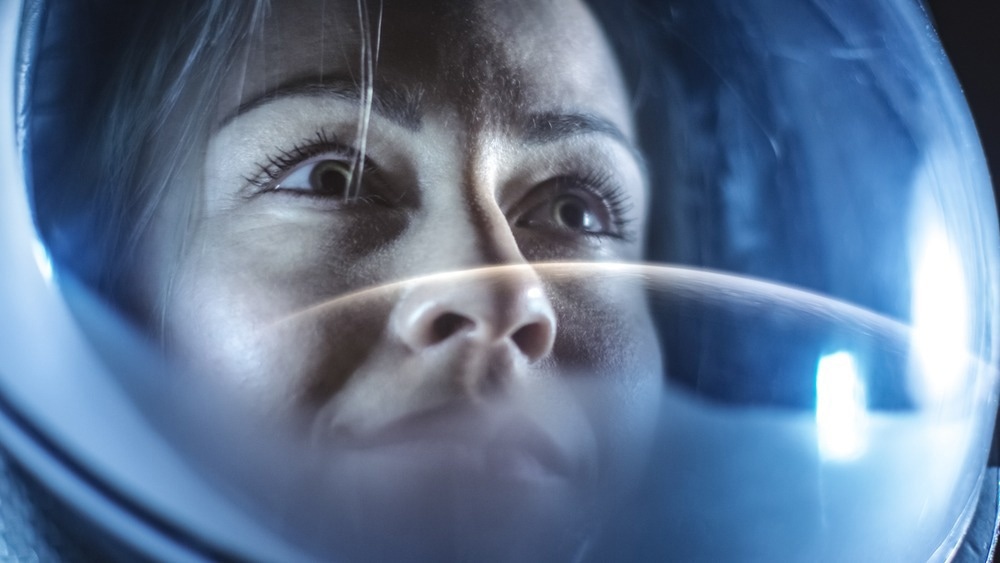
Image Credit: Gorodenkoff/Shutterstock.com
Also, astronauts are known to shed more live virus particles, for example, Epstein-Barr virus, varicella-zoster accountable for shingles, herpes-simplex-1 responsible for cytomegalovirus, and sores. Such remarks indicate that the immune system may be weakened by space travel. But what could result in such an immune deficit?
Laneuville is a leading author of the journal Frontiers in Immunology. The study was financially supported by the Canadian Space Agency.
Gene expression in leukocytes (white blood cells) was studied by the scientists in a cohort of 14 astronauts, inclusive of three women and 11 men, who lived on board the ISS for 4.5–6.5 months between 2015 and 2019. Leukocytes were separated from 4 mm blood drawn from every astronaut at 10-time points: once pre-flight, four times in flight, and five times back on Earth.
There and Back Again
In leukocytes, around 15,410 genes were discovered to be differentially expressed. Amongst these genes, two clusters were identified by the scientists, with 247 and 29 genes respectively, which altered their expression in tandem together with the studied timeline.
Genes present in the first cluster were dialed down while reaching space and back up when returning to Earth, while genes in the second tracked the opposite pattern. Mostly, both clusters comprised genes that code for proteins, but with a variation: their predominant function was connected to immunity for the genes in the first cluster, and to cellular structures and functions for the second.
These outcomes indicate that when someone travels to space, such changes in gene expression resulted in a quick decrease in the strength of their immune system.
A weaker immunity increases the risk of infectious diseases, limiting astronauts’ ability to perform their demanding missions in space. If an infection or an immune-related condition was to evolve to a severe state requiring medical care, astronauts while in space would have limited access to care, medication, or evacuation.”
Dr. Guy Trudel, Rehabilitation Physician and Researcher, The Ottawa Hospital
Dr. Guy Trudel is also a Professor in the Department of Cellular and Molecular Medicine, University of Ottawa
Return to Usual Levels Back on Earth
However, there is a silver lining to this cloud: the data displayed that the majority of the genes in either cluster got back to their pre-flight level of expression within one year following the return on Earth, and normally much sooner—on average, after a few weeks. Such outcomes indicate that returning astronauts run a high risk of infection for at least one month following landing back on Earth.
On the other hand, the authors do not yet know how long it takes before immune resistance is fully back to its pre-flight strength: the length of this period is likely to depend on sex, genetic differences, age, and childhood exposure to pathogens.
The authors assumed that the variation in gene expression of leukocytes under microgravity is activated by “fluid shift”, where blood plasma has been redistributed from the body’s lower to the upper part, such as the lymphatic system.
This leads to a decrease in plasma volume by between 10% and 15% within the first few days in space. The fluid shift is considered to be accompanied by large-scale physiological adaptations, seemingly including all the altered gene expression.
Prophylaxis Against Immune Deficits in Space
The next question is how to apply our findings to guide the design of countermeasures that will prevent immune suppression while in space in particular for long duration flight.”
Dr. Odette Laneuville, Study Lead Author and Associate Professor, Department of Biology, University of Ottawa
Laneuville added, “The health of astronauts while in space, especially during long missions, would benefit from detecting both immune dysfunction and sub-clinical inflammation. Early detection provides opportunities for intervention, with the aim to prevent a progression towards severe symptoms.”
Source:
Journal reference:
Stratis, D., et al. (2023) The transcriptome response of astronaut leukocytes to long missions aboard the International Space Station reveals immune modulation. Frontiers in Immunology. doi.org/10.3389/fimmu.2023.1171103.